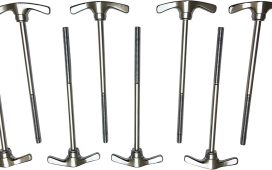Your choice of bank for your small business will have a huge impact on your daily operations and long-term success. Because of this, it is important that you choose the right financial establishment that offers the best small and medium enterprise banking services.
To ensuring you’re making the right decision when picking out a bank to partner with, here are some tips that will help you narrow down your list and, ultimately, select the best one:
-
Know your needs first
Before you start shopping around, create a list of what you need and want from a bank. Do you need a savings or checking account, a loan, a bank guarantee letter or investment advice now? Include these in your list. Make it as detailed as possible since this will guide your choice.
It is also important that you include your future needs in this list; as your business grows, your requirements will increase as well. You can have an idea of what these requirements are by projecting what you expect your business to be in five or 10 years, and what you might need by then.
-
Consider both small and big banks
As a first-time business owner, there is nothing wrong with being easily impressed by a bank’s wide selection of products and services and favorable interest rates. But before you open an account or sign up for anything quickly with a particular financial establishment, make sure you’ve taken enough time to compare both small and big banks and everything that they offer.
Although sometimes both small and big banks offer the same products and even interest rates, you can further narrow down your list by checking out the reputation of these institutions. If you know other business owners, ask them what they like and dislike about their current bank. Take into account their feedback since you will most likely experience the same things if you sign up with their bank.
-
Find out which industries the bank specializes in
Unfortunately, not all banks cater to all industries. In certain instances, a local or regional bank may be more efficient in helping a real estate, IT or food and beverage business. However, their branches in other areas may not be as proficient.
If you want to be sure a certain bank will be your perfect partner, ask a representative if they have experiences in handling businesses in your sector or niche. If they do, you can be sure that they understand your industry and are capable of supporting your current needs and your business as a whole as it grows.
-
Look into the bank’s online services and products
Running a business will take up a lot of your time. By choosing a bank that has online services 24/7, you won’t have to find time during the day to go to the bank to make a deposit or withdrawal or request for a bank statement.
Most banks already offer this feature but you have to choose one that is known for its safe, secure and reliable online banking services. The best banks also have websites that will allow you to apply for a loan or credit card via the internet. With this type of service, you won’t have to spend hours out of the office to apply for and get approval for these products.
-
Get details of all the fees that you may be charged
Although opening a bank account won’t normally cost you anything, you will have to pay for certain fees and charges. For starters, if you fail to retain the monthly maintaining balance (if the account you signed up for has one), a fee will be deducted.
Before opening a business bank account, talk to a representative and find out the cost of ATM usage, checkbooks and writing, interbank transfers, and the use of other facilities you and your business may need. Even if you don’t have plans of applying for a loan or corporate credit card yet, it would still work to your advantage if you ask about their fees in advance.
If you think that the fees are fair and reasonable, and the bank is not known for imposing hidden charges, it is worth considering opening an account with them.
To ensure your business is off to a good start and to sustain its growth, you need to have the right partners to work with. You can begin by choosing the perfect bank that can support your current and future needs so you know your business is in safe hands.






